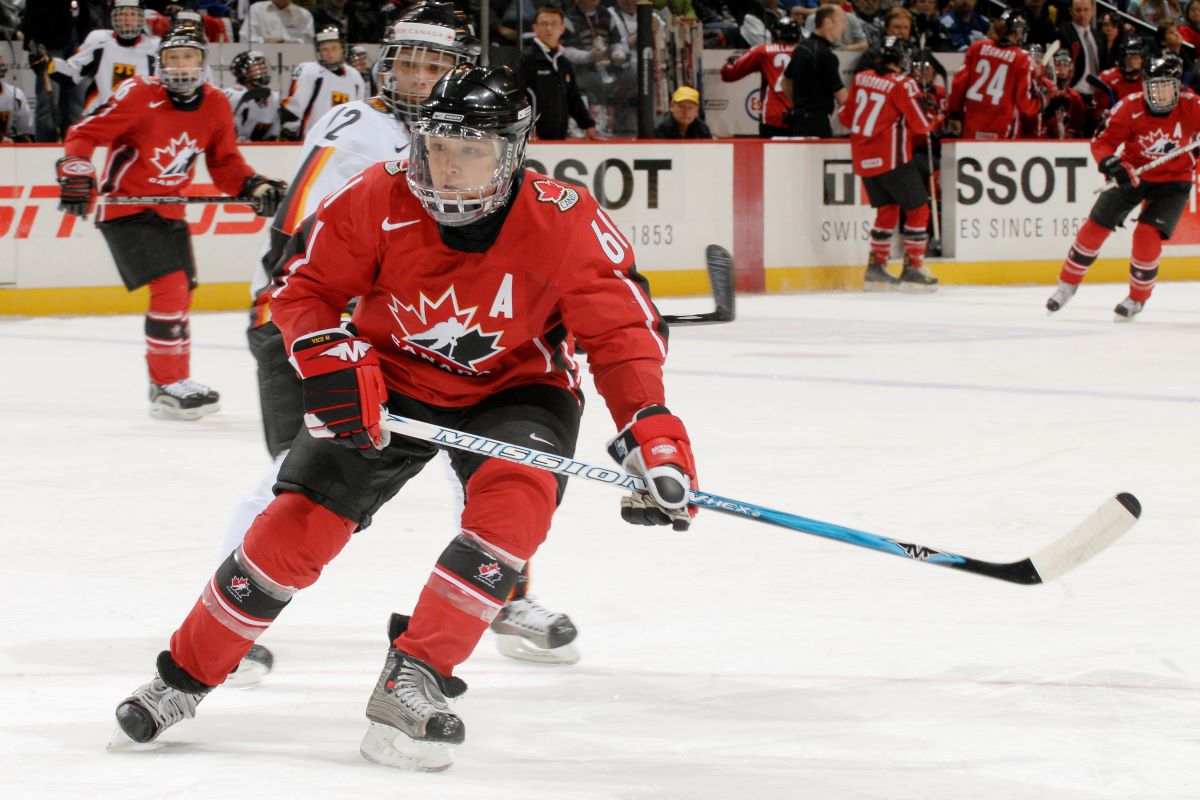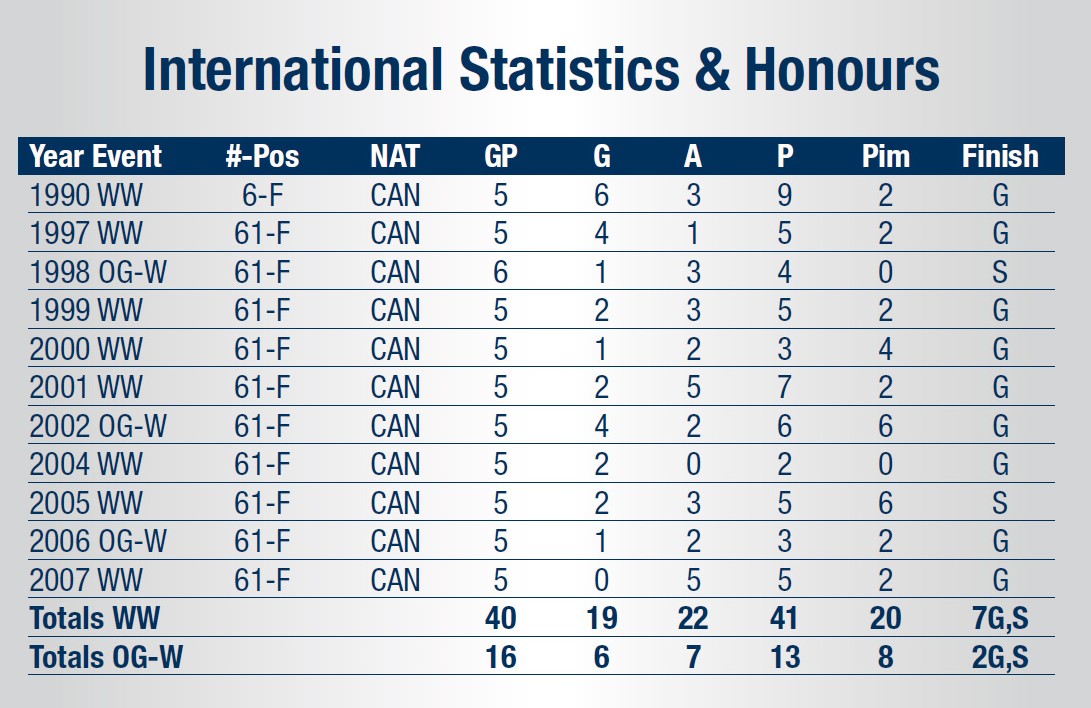photo: © IIHF
During the 2025 IIHF Ice Hockey World Championship, short profiles of each of this year's Hall of Fame inductees will appear on IIHF.com in the build-up to the IIHF Hall of Fame weekend (May 24-25). There will be two ceremonies. The Contributors' Awards ceremony takes place on May 24, followed by the IIHF Hall of Fame Induction ceremony on May 25. Both ceremonies will be shown live on the IIHF's YouTube channel and IIHF.TV.
Vicky Sunohara was two years old when her father built a backyard rink and introduced her to hockey. From that day to this, she hasn’t stopped skating. Even when options were few, Sunohara found ways to play, and when opportunities increased, she merely signed up for more teams, played in more games, and brought more success to wherever she went.
Sunohara played high-school hockey in Toronto and then went south to play for Northeastern in 1988 at a time when recruiting was in its infancy and few Canadians skated in the NCAA. In her first year, she led the team in scoring and was named ECAC rookie of the year. After two years, and averaging nearly three points a game, Sunohara returned home to attend the University of Toronto. She studied physical health education, but she also played at the first Women’s World Championship in 1990 in Ottawa at the age of 19. She had six goals and nine points in five games, including a hat trick against Japan.
Although she continued to play in leagues in Toronto, Sunohara took some time away from the national team, returning in 1997 as the Canadian team was preparing for Nagano. She helped the team win gold in ’97 and then had to settle for a silver at the Olympics, but that only ignited her passion to succeed. She helped Canada win gold at the next three Women’s Worlds— 1999, 2000, 2001—and then was a key factor in Canada’s historic gold medal in Salt Lake in 2002. Sunohara scored four goals, second on the team behind Hayley Wickenheiser.

In addition to her national-team career, Sunohara captained the Brampton Thunder in the NWHL/CWHL for a decade (1998-2009), winning two league titles (1999, 2007) and going to the finals on three other occasions (2002, 2004, 2006). Over the course of her career, Sunohara was perhaps the most impactful player wherever she went. She exuded positive energy, supported her teammates, and led by example on ice. It is no surprise that soon after retiring she became involved in coaching. She has been the head coach of the U of T since 2011, and as head coach of the recently-completed Women’s U18 World Championship she led Canada to gold, thus becoming the first woman to win gold as a player (in the Olympics and Women’s Worlds) and coach (WW18).

Sunohara played high-school hockey in Toronto and then went south to play for Northeastern in 1988 at a time when recruiting was in its infancy and few Canadians skated in the NCAA. In her first year, she led the team in scoring and was named ECAC rookie of the year. After two years, and averaging nearly three points a game, Sunohara returned home to attend the University of Toronto. She studied physical health education, but she also played at the first Women’s World Championship in 1990 in Ottawa at the age of 19. She had six goals and nine points in five games, including a hat trick against Japan.
Although she continued to play in leagues in Toronto, Sunohara took some time away from the national team, returning in 1997 as the Canadian team was preparing for Nagano. She helped the team win gold in ’97 and then had to settle for a silver at the Olympics, but that only ignited her passion to succeed. She helped Canada win gold at the next three Women’s Worlds— 1999, 2000, 2001—and then was a key factor in Canada’s historic gold medal in Salt Lake in 2002. Sunohara scored four goals, second on the team behind Hayley Wickenheiser.

Sunohara was one of the top offensive players of her era but also a leader on ice and off.
Sunohara was on Canada’s 2004 gold-medal team as well, and had to settle for silver in 2005 before returning to the Olympics in Turin, where Canada successfully defended its gold. She played her final tournament in 2007, arguably Canada’s greatest women’s team ever, as they defeated the Americans in the finals, 5-1. In all, Sunohara played in eleven tournaments, winning nine gold and recording 54 points in 56 games (25+29).In addition to her national-team career, Sunohara captained the Brampton Thunder in the NWHL/CWHL for a decade (1998-2009), winning two league titles (1999, 2007) and going to the finals on three other occasions (2002, 2004, 2006). Over the course of her career, Sunohara was perhaps the most impactful player wherever she went. She exuded positive energy, supported her teammates, and led by example on ice. It is no surprise that soon after retiring she became involved in coaching. She has been the head coach of the U of T since 2011, and as head coach of the recently-completed Women’s U18 World Championship she led Canada to gold, thus becoming the first woman to win gold as a player (in the Olympics and Women’s Worlds) and coach (WW18).















